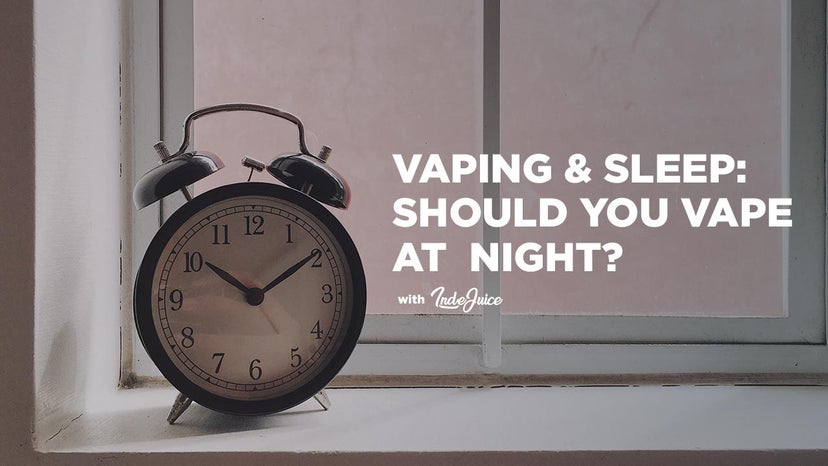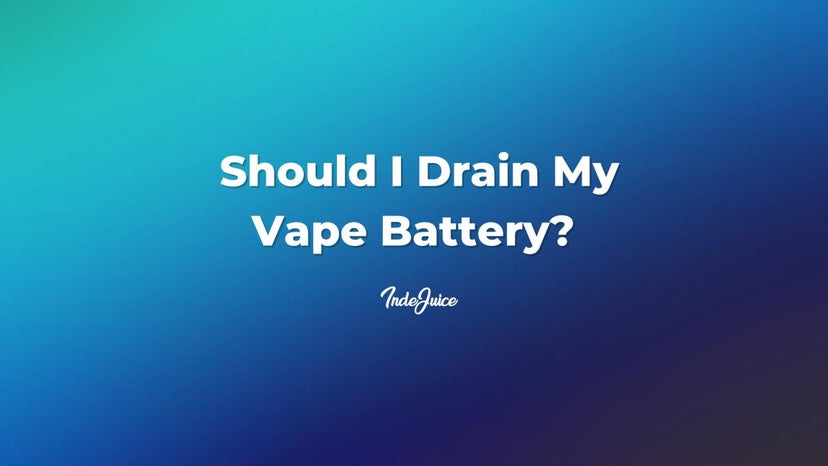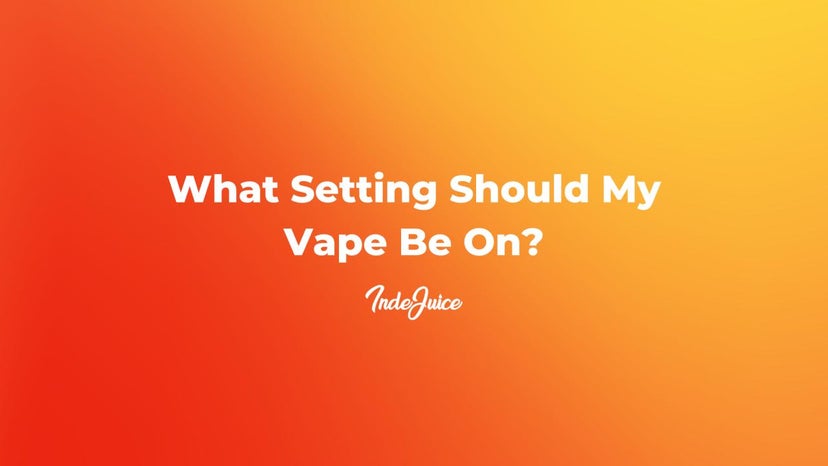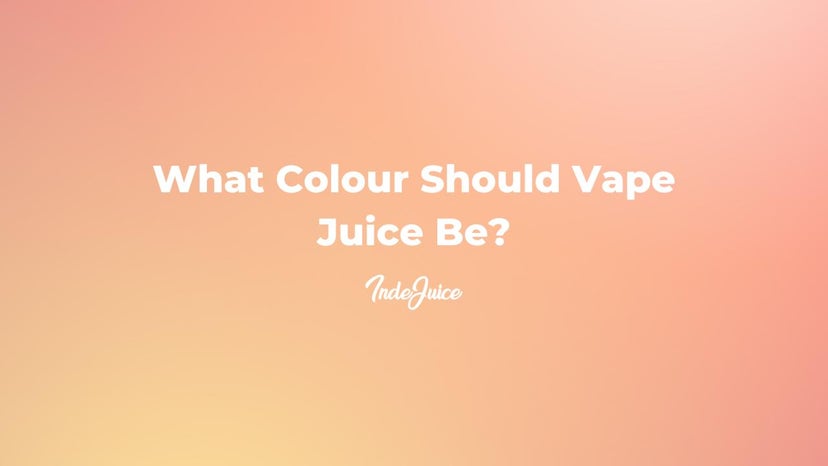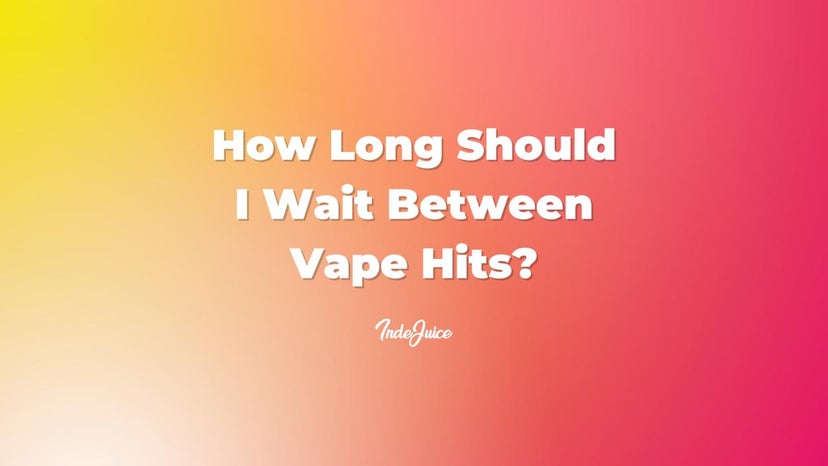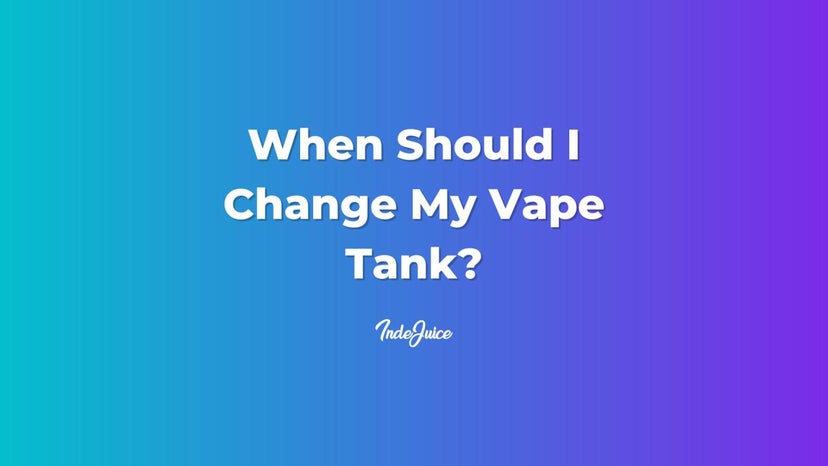Vaping Before Bed: Should I Vape at Bedtime?
Published 2 May 2024
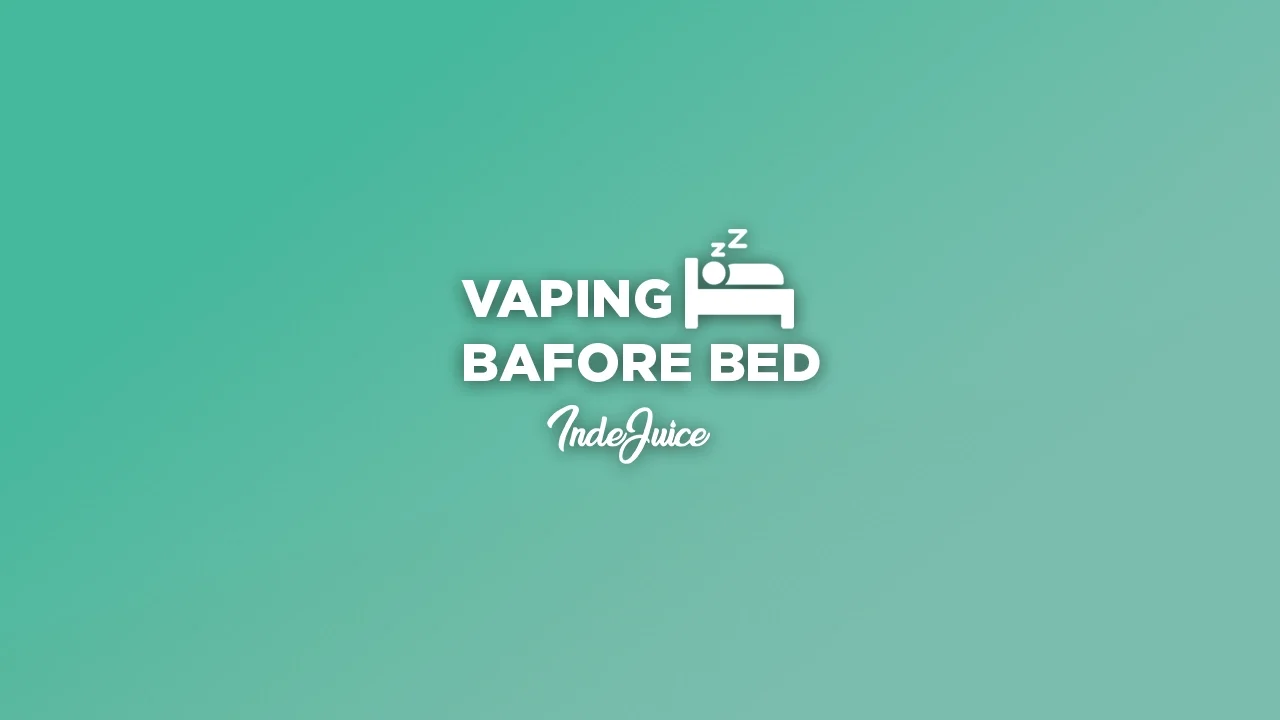
Vaping at bedtime is likely to result in difficulties sleeping as nicotine, the main stimulant in vape liquids, is associated with lower sleep quality and insomnia. A 2019 study from the Department of Psychology, Oklahoma State University, published in the Journal of Sleep Research, found that e-cigarette users reported significantly more sleep difficulties than never users. Users of e-cigarettes reported greater use of sleep medication than combustible cigarette users.
Nicotine is an addictive chemical found in cigarettes, vapes, and other tobacco products. When inhaled or ingested, nicotine can reach the brain within seconds, triggering a cascade of effects on the body, including changes in heart rate, mood, digestion, and sleep. For those trying to quit smoking or cut back on vaping, understanding the relationship between nicotine and sleep is key.
Should I Vape Before Bed?
Vaping before bed is not a good idea. Numerous studies have shown that nicotine from tobacco or vapes can negatively impact sleep. Nicotine acts as a stimulant, which can make it harder to fall and stay asleep. According to the Sleep Foundation, smokers are almost 50% more likely to experience sleep troubles than non-smokers.
Nicotine affects sleep in a few key ways:
- Nicotine can lead to lighter, less restorative sleep
- Nicotine can exacerbate existing sleep disorders
- Nicotine withdrawal can cause sleep deprivation
By disrupting sleep, nicotine can leave you feeling drowsy and fatigued the next day. Poor sleep is also linked to impaired concentration, memory issues, low mood, and reduced immune function.
Nicotine and Sleep Stages
A 2024 study published in Healthcare looked at the habits of 314 college students aged 18-25 at the University of Surrey in England. The researchers compared the results from 263 students who do not vape to the 49 students who do. The scientist found that over 77% of vape users reported symptoms of insomnia, particularly difficulty in falling asleep and staying asleep, compared to the 64% of participants who were non-vapers.
During sleep, we cycle through different stages including light sleep, deep sleep, and REM sleep. Deep sleep and REM sleep are critical for body restoration, muscle repair, memory consolidation, and learning.
Studies show nicotine can alter normal sleep architecture, leading to:
- Less time in deep, slow wave sleep
- More time in lighter stages of sleep
- Frequent awakenings during the night
With less deep, restorative sleep, we wake feeling groggy and unrefreshed.
Nicotine use is also associated with an increased risk of sleep disorders including:
- Snoring and sleep apnoea: Nicotine relaxes the throat muscles leading to snoring and sleep apnoea, where breathing stops and starts during sleep.
- Restless leg syndrome: Nicotine may exacerbate restless leg syndrome, characterised by uncomfortable sensations in the legs and an urge to move them.
- Nightmares and other parasomnias: Nicotine withdrawal can trigger vivid dreams, nightmares, sleepwalking, and sleep talking.
For those already suffering sleep disorders like sleep apnoea, nicotine can further disrupt sleep duration.
Does Nicotine Keep You Awake?
A 2019 research review published in the Nicotine & Tobacco Research Journal by scientists at the University of Delaware found that cigarette smokers take 5-25 minutes longer than nonsmokers to fall asleep. As nicotine is the main stimulant in cigarettes and e-cigarettes, similar findings are likely for e-cigarettes, but more research needs to be done
As a stimulant, the nicotine in vapes activates the release of hormones like adrenaline which increases breathing, blood pressure, and heart rate. This leads to a boost in alertness and concentration. This is why nicotine can make it harder to relax and fall asleep. The stimulant effects also explain why many people smoke to help them feel more awake.
Does Nicotine Make You Tired?
Nicotine can make you feel tired and fatigued as noted by the Medline Plus. According to their Medical Encyclopedia, nicotine withdrawal can lead to the following symptoms:
- Cravings for nicotine
- Anxiety, depression, and mood swings
- Headaches and muscle pain
- Irritability and difficulty concentrating
- Increased appetite and weight gain
- Vivid dreams and nightmares
These withdrawal effects disrupt sleep and can lead to daytime sleepiness and low energy. The good news is these symptoms are temporary and sleep typically improves within a few weeks after quitting vaping and/or cigarette smoking.
Can Nicotine Replacement Therapy Affect Sleep?
Nicotine replacement therapy (NRT) like gum, lozenges, sprays and patches help people quit smoking and vaping by delivering controlled doses of nicotine to ease withdrawal symptoms.
Some people report sleep health when starting NRT, especially with the 24-hour nicotine patch. Potential side effects include:
- Vivid dreams and nightmares
- Insomnia
- Daytime sleepiness
These effects are often worse in the first few days and improve as the body adjusts to the nicotine patch. Removing the patch at night can help minimise sleep disturbance.
When to Stop Vaping Before Bed
Stop vaping 1-2 hours before bed to give your body sufficient time to clear out the nicotine from your system, reducing the likelihood of vaping disrupting your sleep.
In addition to avoiding vaping vaping before bed, try these tips to increase the liklohood of better sleep when vaping before bed:
- Choose lower nicotine strength or nicotine-free e-liquids.
- Stay hydrated - vaping can cause dry mouth and dehydration leading to restless sleep.
- Don't vape if you wake in the night - the nicotine can make it harder to fall back asleep.
- Talk to your doctor if vaping exacerbates sleep apnoea or insomnia symptoms. Adjusting vape use, the nicotine dose, or sleep medicine may help.
How to Improve Sleep While Quitting Vaping
Quitting e-cigarettes can be tough on sleep health, but these healthy habits can help:
- Get moving - Regular exercise helps relieve stress and tires the body so you fall asleep faster. Avoid vigorous exercise close to bedtime.
- Watch the caffeine - Caffeine is a stimulant that can exacerbate nicotine withdrawal. Avoid coffee, tea, soda and energy drinks in the late afternoon and evening.
- Limit screen time - Blue light emitted from phones, TVs and computers suppresses melatonin production. Avoid screens in the hour before bed.
- Establish a calming bedtime routine - Take a warm bath, listen to soothing music, practice deep breathing exercises. A consistent routine signals to the body it's time to wind down and sleep.
- Stop NRT before bed - If using the nicotine patch, remove it a few hours before bed to minimise sleep disturbances.
With commitment and healthy sleep habits, the negative effects of nicotine withdrawal on sleep can be overcome.
Pros and Cons of Vaping Before Bed
Vaping before bed is controversial. Potential downsides include:
- Nicotine's stimulant effects making it harder to fall asleep.
- More disruptions and shallower sleep due to nicotine.
- Increased dependence on vaping to feel tired.
However, some argue the pros outweigh the cons:
- Vaping relaxes them and helps transition into sleep mode.
- The bedtime ritual of vaping is calming.
- For heavy smokers, vaping before bed prevents intense nicotine cravings.
Overall, vaping too close to bedtime is best avoided. Ideally, stop vaping 1-2 hours before bed to allow time for the nicotine to clear your system.
Does vaping make you tired or awake?
Nicotine from vaping can briefly increase alertness but often leads to tiredness as the stimulant effects wear off. Tiredness is also a symptom of nicotine withdrawal.
Why does vaping make it harder to sleep?
Nicotine is a stimulant that raises heart rate and affects sleep cycles. Vaping close to bedtime means nicotine is still circulating when trying to fall asleep.
How bad is vaping before bed?
Vaping before bed is not recommended as nicotine can reduce total sleep time and disrupt sleep quality. Limit vaping to at least 1-2 hours before bedtime.
Can vaping help insomnia?
There's no evidence vaping helps insomnia. The nicotine in vapes makes existing sleep problems worse for many people.
Can vaping cause sleep apnoea?
While vaping doesn't directly cause sleep apnoea, it can exacerbate breathing problems at night in those with existing sleep apnoea.
Does Vaping Help You Sleep?
Despite anecdotal reports that vaping relaxes and helps sleep, there's limited scientific evidence that vaping improves sleep quality or duration.
In fact, several studies found vaping before bed:
- Increased the time it takes to fall asleep.
- Decreased time spent in deep, restorative sleep stages.
- Increased awakenings during the night.
- Resulted in less sleep overall.
More research is still needed, but current evidence suggests vaping negatively impacts sleep, especially when done close to bedtime.
Nicotine from vaping and smoking can negatively impact sleep in multiple ways, from increasing insomnia risk to exacerbating sleep disorders. While vaping may seem relaxing, nicotine and other vape chemicals hinder our ability to fall and stay asleep.
Limiting nicotine intake in the evenings, establishing good sleep hygiene, avoiding screens before bed, and being consistent with sleep and wake times can offset the disruptive effects of nicotine on sleep and reduce the side effects of vaping.
For smokers trying to quit, a few nights of poor sleep may be unavoidable. But the overall benefits of quitting cigarette use and transitioning to reduced harm vaping far outweigh short-term sleep disturbances. With some patience and healthy habits, restful nights will return.
